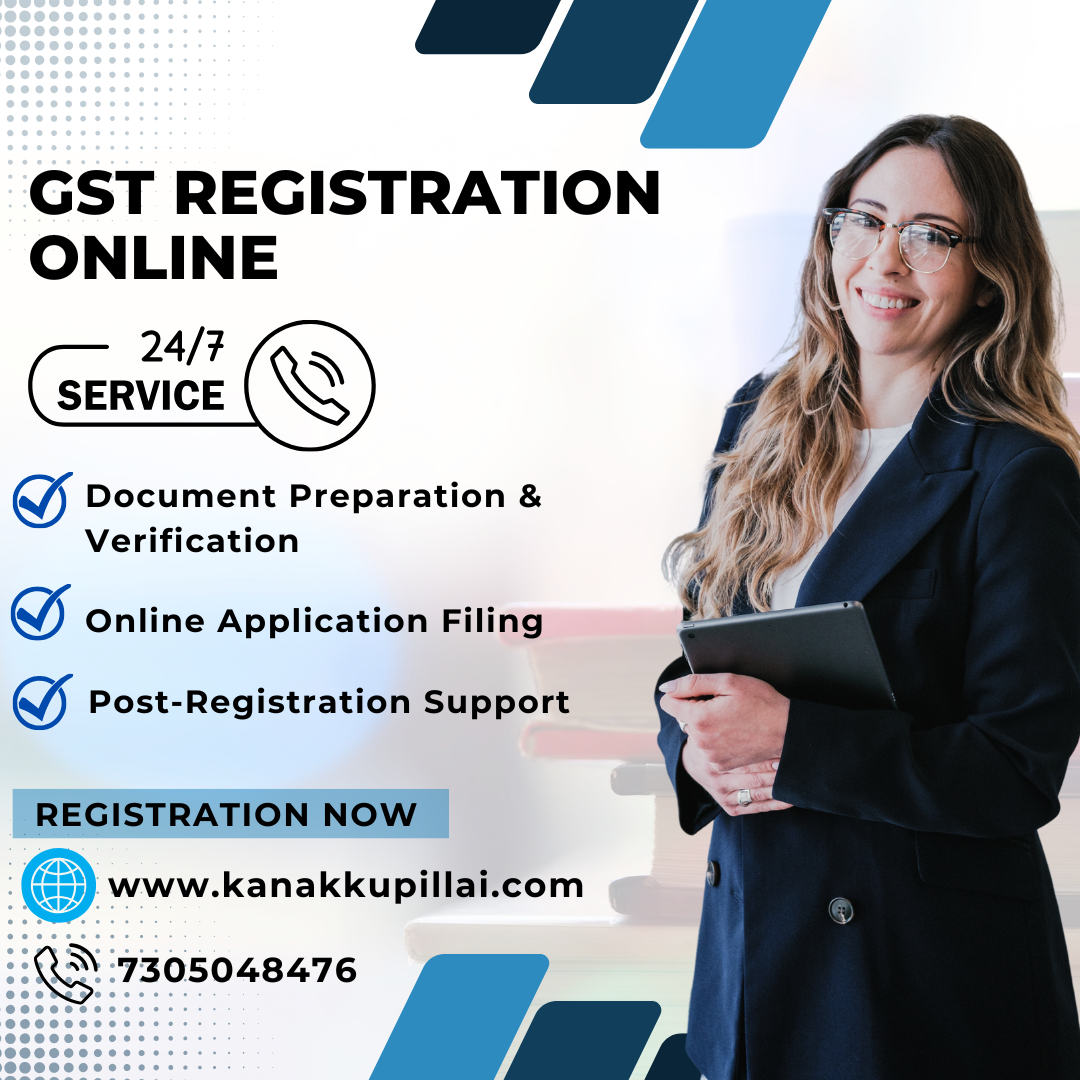If you manage a business in India, you cannot avoid GST - Goods and Services Tax. The implementation of GST is now simply part of how we do business. GST sounds a little threatening and complicated at first. The upside is that you can register for GST online from your home or office without needing to be a tax lawyer.
In this article, we will explain GST Registration Online using simple, easy-to-understand English, without all the legal jargon, without beating around the bush, and without lacking style and friendliness. This article is written for shopkeepers, freelancers, and people starting new businesses.
What is GST, and why is it significant?
GST is a single tax and extends to What is Goods and Services Tax, and why is it significant? GST is a single tax and replaces a host of indirect taxes such as VAT, excise duty, and service tax. GST is a destination-based tax on economic activity on goods and services. GST is intended to simplify the indirect tax system, and it has simplified, for the most part, the indirect tax system.
Who Requires Registration for GST?
Here's a straightforward look at who has to register:
- Businesses with a turnover above ₹40 lakhs (₹20 lakhs in some special category states)
- Service providers with a turnover above ₹20 lakhs (₹10 lakhs in special category states)
- E-commerce sellers
- Interstate suppliers
- Businesses paying tax under the reverse-charge structure
- Non-resident taxable persons and casual taxable persons
If you are not sure whether you belong to any of the above categories, it is better to check than to take a specific course of action. You do not want to be fined.
Cost of Registering for GST
Still unsure? Here are a few very good reasons why registering for under GST is worth the paper it’s printed on:
- Legal acknowledgment of your business as a supplier of goods/services.
- Input tax credits — claim the tax you pay on purchases.
- Logistics facilitation - fewer restrictions when moving goods between states.
- Ability to apply to larger clients - the majority of companies only work with GST-registered vendors.
- Overall, registering under GST will only provide you with a greater business opportunity.
What You’ll Need Before You Begin
Before you head over to the portal, you’ll want to have the following documents at the ready so you won't have to go back and forth later:
Individuals and Sole Proprietors:
- PAN and Aadhaar
- Proof of business address (electricity bill/rent agreement)
- Bank account details
- Passport-size photo
For companies or partnerships:
- PAN card of the company/firm
- Certificate of incorporation or partnership deed
- Address proof
- Identity and address proof of directors/partners
- Digital Signature Certificate (DSC) for company registration
A Step-by-Step Guide to Registering Online for GST
Let's tackle this together. It is less complicated than it seems.
Step 1 - Go to the GST Portal
Go to https://www.gst.gov.in. On the homepage, click on the 'Register Now' option under the 'Taxpayers (Normal/TDS/TCS)'.
Step 2 - Complete Part A of the Form
You are asked for:
- Your legal name (as per PAN)
- Email ID
- Mobile number
- PAN number
Once your OTPs have been verified, you will receive a Temporary Reference Number (TRN).
Step 3: Fill Out Part B of the Form
Log in with your TRN and fill out the rest of the form:
- Contributor details
- Contributors/partners
- Authorized signatory
- Location to conduct business
- Goods and/or services supplied
- Bank account particulars
- Provide the necessary upload documents where indicated.
Step 4: Verification and Submission
Once everything is input, you will apply using either of the following:
- Electronic Verification Code (EVC), or
- Digital Signature Certificate (for companies)
- You will receive an Application Reference Number (ARN) after submission.
Common Mistakes to be Aware Of
Though the online process is quite a straightforward process as mentioned above, there are mistakes that people make that can cause considerable delays in the application being approved. Here are things to look out for:
Discrepancy in documents: check that your PAN name matches your Aadhaar.
Incorrect Address proof: Ensure documents are up to date and valid.
Using your bank account for business: Consider opening a separate business bank account.
Finally, be sure you are inputting the correct codes to goods/services (HSN/SAC codes) this is important for subsequent return filing.
Final Takeaways
While applying for GST registration seems like a government bureaucracy to jump through, it does send the message that your business is on a growth path. GST registration allows you to access more potential customers, offers a more streamlined process when selling to your customers, and most importantly, your finances are more transparent.
Using the online registration process, once you have all of your documents could be relatively painless. But if it is still burdensome, there are professionals and websites out there to make GST Registration Online fast and easy, like Kanakkupillai.com.
Kicking off a new entity, no matter how small or how new, can only help you create a long-term vision for the business and keep yourself functioning within the boundaries of the law.
Need Help?
If you would rather not do all of the paperwork yourself, Kanakkupillai offers end-to-end GST registration as a service. They provide a consultation, complete the document filing, and follow up with the GST department.





Comments